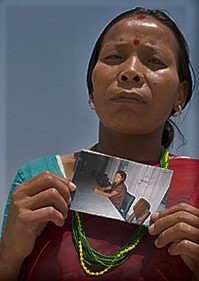Modern Day Slavery and Human Trafficking

"This year we are slaves; next year, may we be free."
—Passover Haggadah
"No one shall be held in slavery or servitude; slavery and the slave trade shall be prohibited in all other forms."
—Universal Declaration of Human Rights, Article 4
T'ruah is leading the charge in the Jewish community against modern-day slavery and human trafficking, focusing on the issue of slavery in supply chains. Our work includes
- Partnering with the Coalition of Immokalee Workers to expand the Fair Food Program, the most effective slavery prevention program in U.S. agriculture.
- We are the only Jewish organization that is a member of ATEST, the Alliance to End Slavery &Trafficking, the premier U.S. coalition dedicated to supporting those vulnerable to trafficking.
- Supporting federal legislation to help survivors of trafficking.
- Training more than 70 rabbis in New York, Los Angeles, and Washington, DC to engage their communities in addressing slavery and trafficking locally.
- Co-leading the Jewish Coalition Against Trafficking, together with the National Council of Jewish Women.
- Partnering with Equal Exchange and Divine Chocolate, to encourage Jewish communities to purchase kosher Fair Trade Chanukah gelt, kosher-for-Passover chocolate, coffee, and other products.
Three thousand years after the Jewish people are said to have been liberated from slavery, and 150 years after the Civil War, more people are enslaved today than at any other point in history. According to the most conservative estimates of the International Labor Organization, nearly 21 million people are held in situations of forced labor today: three out of every 1,000 people in the world.
Human trafficking does not occur in a vacuum but represents the extreme end of a continuum of worker exploitation and vulnerability. We therefore support worker-led campaigns to raise wages, combat abuses, and create meaningful enforcement mechanisms to implement hard-won rights.
